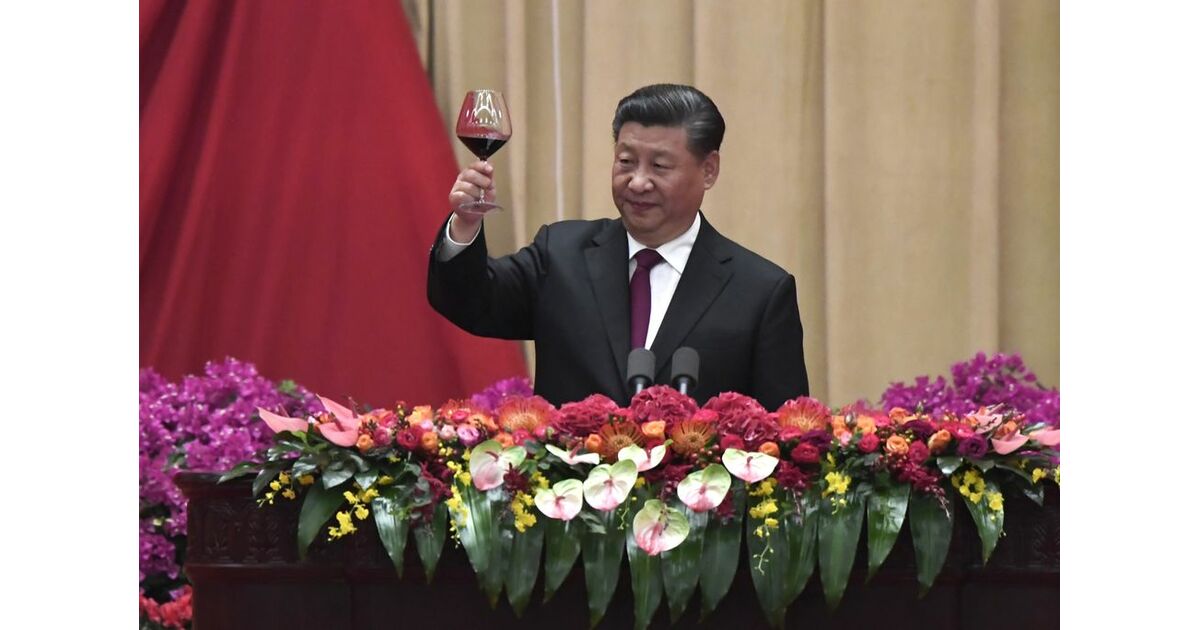
Over the past century, globally ambitious autocracies have frequently made two fatal mistakes. First, they have underestimated the U.S., a country whose shambolic democracy masks its tremendous resilience and strength. Second, they have failed to see how their own aggressive behavior will, eventually, drive their multiplying enemies together. Judging by recent events, Xi Jinping’s China is making both mistakes at once.
Xi doesn’t think much of America right now. In speeches, he has said that “the world is going through changes seen once in a century” as China rises and the U.S. falters. In a meeting with Joe Biden administration officials in Alaska last month, his diplomats ridiculed the idea that a divided, distracted America could speak to Beijing from a “position of strength.”
A country that has suffered more than 550,000 deaths from Covid-19, that saw its capitol sacked by its own citizens, and that spent four years under President Donald Trump lashing out at the international system, is in deep trouble, Chinese propaganda organs argue. Why shouldn’t Beijing push for advantage in the South China Sea, the Taiwan Strait and many other fronts at once?
Yet Xi might not sound so confident if he looked a bit more at history. In the years just before World War II, Adolf Hitler correctly expected America’s eventual hostility, but he unwisely deprecated its purpose and strength. For much of the Cold War, Joseph Stalin and his Soviet successors argued that the “correlation of forces” was shifting in favor of socialism. It thus came a shock when, in the 1980s, U.S. economic and military resurgence left a fading Soviet Union far behind.
Rulers of systems predicated on harsh political discipline have often mocked the travails of a fractious democracy — right up to the point where that democracy summons its power and buries their geopolitical ambitions.
Aggressive autocrats also struggle to see how habitual belligerence can draw the geopolitical noose around their own necks. Hitler’s aggression ultimately caused the leading capitalist powers, the U.S. and U.K., to forge an unlikely alliance with the leading Communist power, the Soviet Union. At the outset of the Cold War, Stalin believed that Soviet Union would triumph because the capitalist world would once again tear itself apart. He didn’t anticipate that his own menacing behavior would cause the capitalist world to pull itself together and leave the Communist world behind.
Xi is on a similar path today. The U.S. may appear to be in advanced domestic decay. But its problems are hardly worse than they were in 1937, when the country was mired in a seemingly endless Depression, or in 1968, when its cities were aflame with protests and violence far exceeding what happened last summer, or in 1979, when America was beset by stagflation and malaise. If anything, Xi should be more worried about the long-term prospects of China, whose looming economic, financial and demographic challenges make America’s admittedly serious problems look rather tractable.
He should also be worried about the global blowback China’s offensive is stirring. After a deadly scrape with Chinese soldiers in the Himalayas, India has accelerated its long, gradual move toward the U.S. Since Beijing snuffed out of the rule of law in Hong Kong, the U.K. has been talking about joining the Quad — now comprising Australia, India, Japan and the U.S. — and seeking to limit its technological dependence on China.
France is leading multilateral naval exercises that are unmistakably directed at Beijing. And in response to Chinese threats against Taiwan, several leading democracies are now publicizing, albeit discreetly, their consultations on how they might respond to an invasion of that island.
Xi has even managed to jeopardize his most important diplomatic coup of the past year, the Comprehensive Agreement on Investment With the European Union, signed over the objections of the incoming Biden administration in December. After the EU sanctioned Chinese officials for human rights violations in Xinjiang, Beijing struck back with counter-sanctions targeting — among others — European parliamentarians and think-tank experts who had criticized Chinese policies. By effectively demanding that European countries muzzle their own citizens, China has thrown the CAI into doubt.
Xi is thus giving Biden plenty of opportunity to deliver on his promise of a more multilateral strategy for competing with China. At some point in the next few years, it may dawn on Chinese leaders that the strategic balance is not tipping irreversibly in their favor, and that Beijing is facing geopolitical encirclement as it provokes hostility on multiple azimuths.
Paradoxically, that’s not entirely good news for the U.S.: This realization could simply lead Xi to act more aggressively to reap the international gains he seeks — starting, perhaps, with forcible reunification with Taiwan.
This, unfortunately, is also a historical pattern. As Michael Beckley and I have written, revisionist powers become most aggressive when their growth slows, their strategic enmities multiply, and they discover that they have only a short period of time to achieve their goals. Imperial Germany fell into this trap before World War I, Imperial Japan did likewise before World War II, and China may be following the same trajectory today.
The scary reality of U.S.-China relations is that we may soon enter a period of even higher tensions. Overconfident autocrats who think the world is moving in their direction can be very dangerous. Desperate autocrats who suddenly realize that their window is closing can be more dangerous still.
https://www.bloomberg.com/opinion/articles/2021-04-08/china-s-arrogance-is-uniting-its-rivals-around-the-u-s

